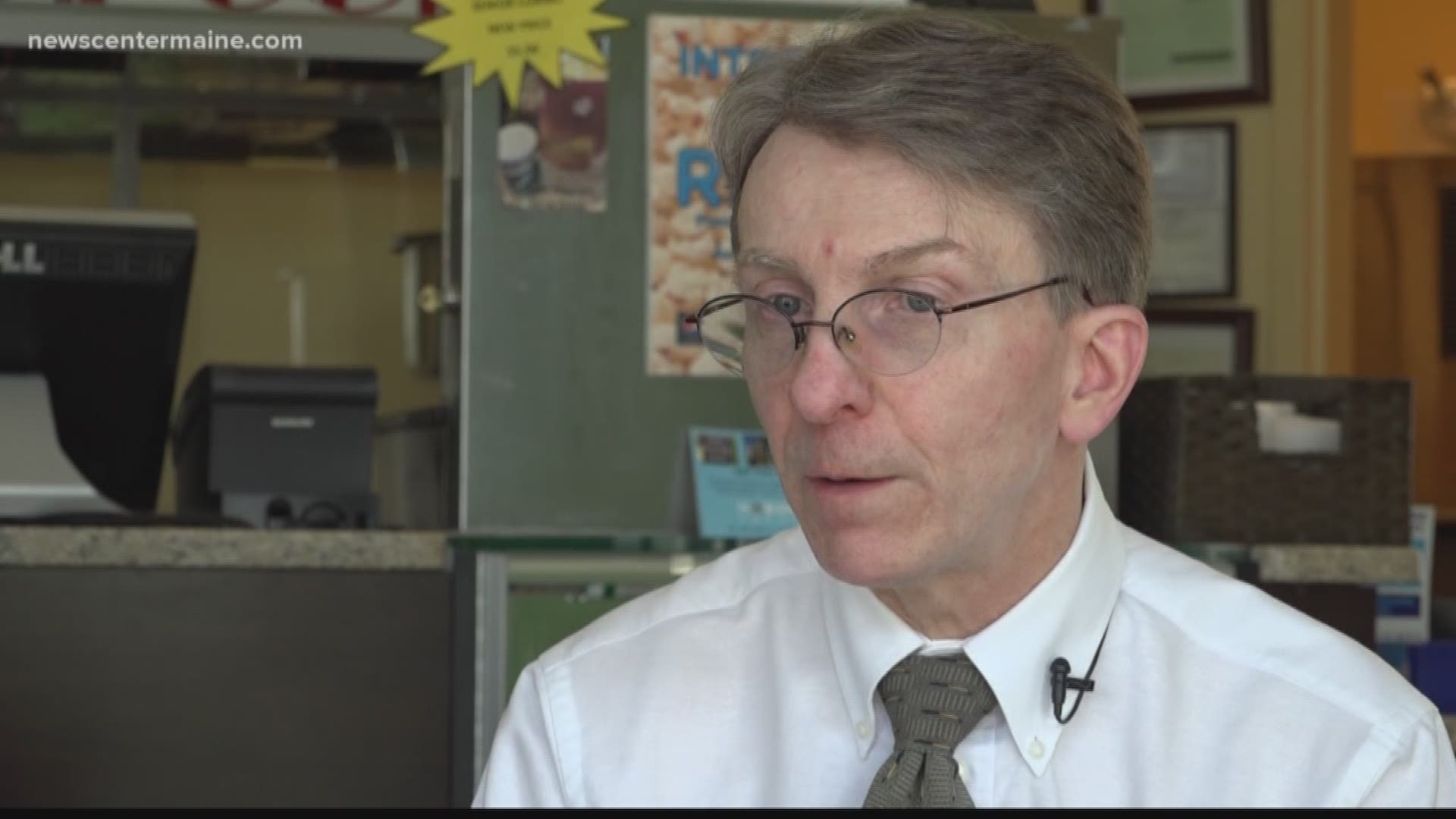FREEPORT (NEWS CENTER Maine) -- The Americans with Disabilities Act requires movie theaters to accommodate those who are deaf and hard of hearing, unless it would cause for an undue burden. NEWS CENTER Maine recently uncovered how that's not always the case in Maine.
We highlighted the difficulties Deaf Mainers go through when attempting to go to the movies, including communicating which film they want to see to the box office, clunky closed captioning devices, even being turned away due to lack of captioned movies.
Meryl Troop, Director for Deaf Services for Disability Rights Maine (DRM) says compliance to the ADA is spotty.
“Sadly, there really is no enforcement mechanism for any aspect of the Americans with Disabilities Act,” she said. “It is solely complaint driven.”
DRM filed two complaints in recent years to the Maine Human Rights Commission on behalf of deaf individuals who came forward to complain about theaters not being accessible. One of those theaters was Nordica Theatre in Freeport.
Opening in 2011, the theater was built without any sort of closed captioning capability, which was illegal. General Manager Dennis Levasseur, not in a managing position at the time, could not specifically comment on the complaint.
Nordica Theatre complied with the ADA after the complaint was settled.
"I think it's a complicated situation because the rules and regulations are to make it so it minimizes the impact on anyone with any degree of disability," he said, "and there are multiple types of disabilities that are there. They want to try and make it so the experience is something that is enjoyable for as wide a range a demographic as possible."
Levasseur says he does his best to comply, with closed captioning in the form of CaptiView devices and captioning goggles available for every auditorium for any movie at any time. Nordica does not, however, show any open caption screenings, which many in the Deaf community want to see more of.
"It's something that's a possibility," he said. "It's something where there might be two different schools of thought about it, where some people might find it a distraction. But then there are other people, it would allow them the enhanced enjoyment of that particular feature that is there."
Terry Morrell, Director of the Division for the Deaf, Hard of Hearing and Late Deafened for Maine, argues open captions can help audiences beyond the Deaf community.
“A lot of people don’t realize captioning can benefit any individual. It benefits children who are learning how to read or anyone who would like to learn English as a second language,” he said.
The ADA serves as the minimum standard for movie theaters. When asked if Nordica would be open to going above and beyond for those with disabilities, Levasseur said, "I am trying to, in the process of meeting the requirements, learn as much as I can and try and comply as best as I am able. I'm trying to educate myself as much as possible and see how I can meet the requirements."
Levasseur also explained his employees go through closed captioning training and must sign documents acknowledging they did so, which is not required by the ADA. He said he's been in communication with the Maine Human Rights Commission regarding the policies he's developed in conjunction with the complaint settlement, as the theater will be monitored for two years to ensure its complying with those standards.

